For Israel, simply surviving is serious business. More and more Israeli Jews, along with people around the world who care about peace in the Middle East, think Israel would be wise to lighten up a bit. But when you travel there and hang out with the older generation, you appreciate why most of them take every threat to their nation extremely seriously and make their own rules for security without waiting for anyone else's OK.
That's the generation that remembers 1967, when Hebrew-language propaganda radio from Egypt broadcast to a young generation of Israelis: "Dear fish of the Mediterranean, don't bother eating now because in a few days you'll be dining on two million Jews." And, while lately, the news fixates on missiles from Iran, Israel considers it has two Iranian divisions right on its border: Hamas (in Gaza) and Hezbollah (in Lebanon).
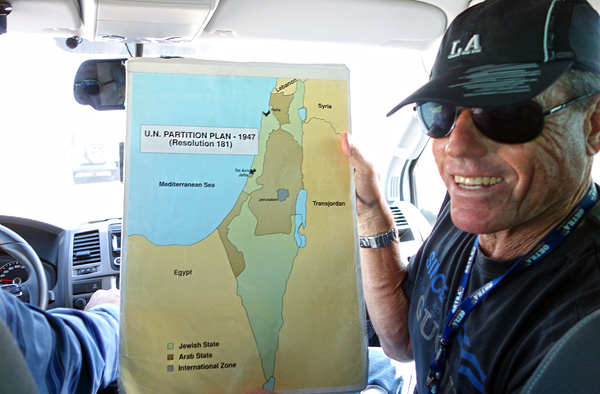
My guide, Benny Dagan, illustrated with maps and charts how Israel quadrupled in size in 1967 after the Six-Day War. For its own defense, Israel insists on keeping the land it took as a buffer, and to never again have Arab gun emplacements able to shoot down at Israel from the high ground -- a kind of grinding terror the country lived with from the late 1940s to 1967.
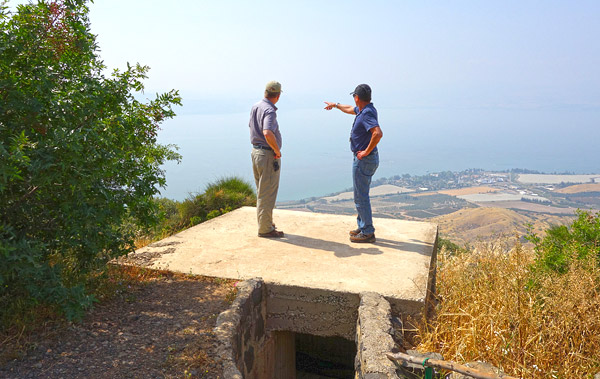
From this Syrian military post, named "High and Mighty," Syrians looked down on Israel's primary water source and shelled civilians at will from 1949 until 1967, when Israel "made them pay the bill" in a six-day military rout. Photo by Trish Feaster (for her blog, see The Travelphile).
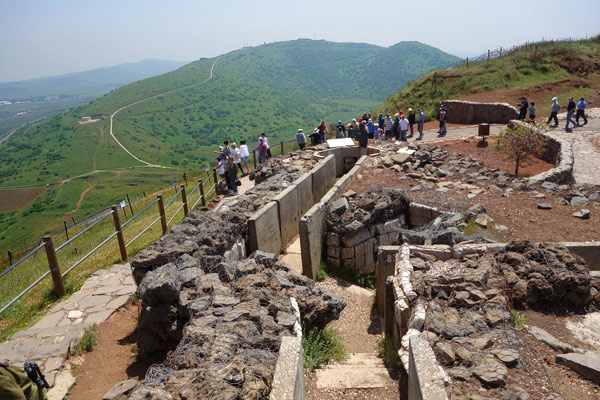
The Gadot Lookout in the Golan Heights overlooks the upper Jordan River valley, and is on the border of the present UN buffer zone with Syria. Since 1967, Israel has controlled the Golan Heights. As long as things are peaceful, the trenches and barbed wire here provide a kind of commando playground for visiting Israelis. Another vantage point, on Mount Bental, looks down on the road to the Syrian capital, Damascus -- just 35 miles to the north. The café atop Mount Bental is named "Coffee Annan," a clever reminder that it was United Nations Secretary-General Kofi Annan who once led the UN troops stationed below. And, Annan means "clouds" in Hebrew -- so it's "coffee above the clouds."
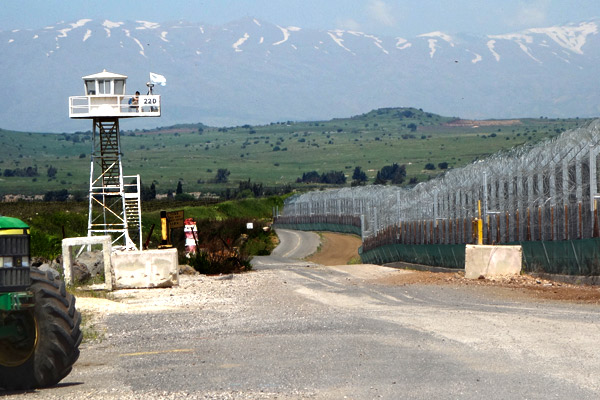
It was fascinating to drive right up to the Israel-Syria border, a tense no man's land patrolled by United Nations troops.
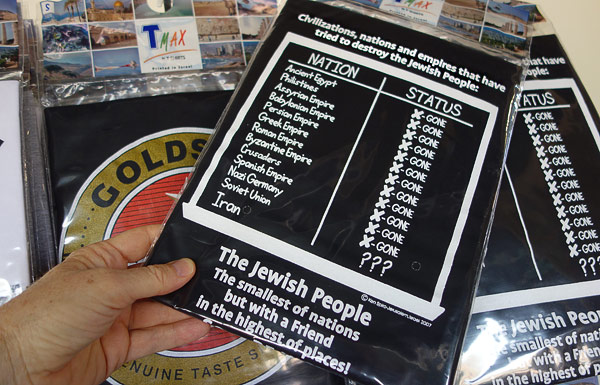
Souvenir T-shirts like this weave in political themes, as the political realities are a part of any curious visitor's experience. It is thought-provoking how many mighty nations and empires once threatened Israel and how -- of all of them -- only Israel survives. The joke: Israel has friends in high places. (In all fairness, along with heaven, that would include Washington, D.C.)
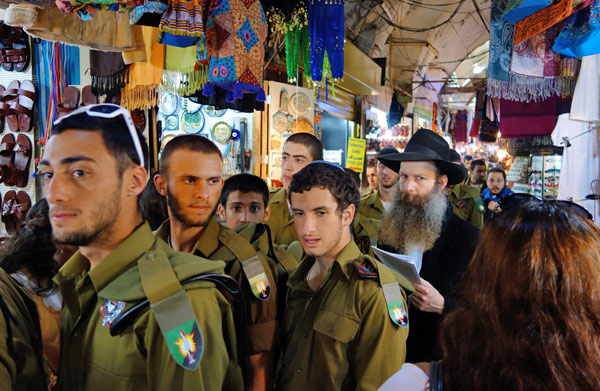
All Israelis go into service at age 18: men for three years, women for two years. While the primary purpose is to protect the country, a strong secondary purpose for the universal draft is to build social cohesion. Military service functions as a kind of cultural boot camp for first-generation Israelis -- new arrivals from places like Russia, Iraq, and Ethiopia. After three years in the army, they're no longer FOB -- "fresh off the boat." Photo by Trish Feaster (for her blog, see The Travelphile).
This mountain perch, atop the Golan Heights in the far north of Israel, was once a hotly contested strategic high point between Israel and Syria (which is now at war with itself, but seems at peace from this vantage point). Today, it welcomes tourists.